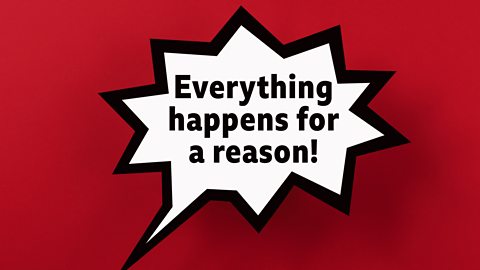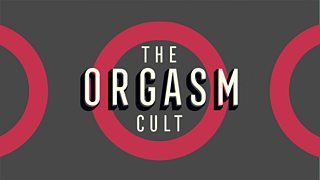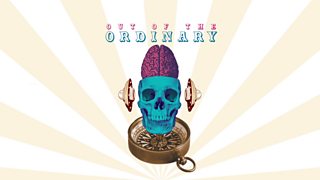The secret language of cults
Just how do cults sell their ideologies to draw people in, and then convince doubting members to stay? Amanda Montell is a writer, language scholar and author of the book, Cultish: The Language of Fanaticism. She joins Michael Rosen on Word of Mouth to talk about the language used by cults and the way it has permeated other unexpected, everyday areas of life, from business to fitness.
What does the word “cult” mean?
The earliest version of the term can be found in writings from the 1600s. Back then it simply meant “homage paid to divinity” or “offerings to win over the gods”. The word evolved and by the 19th century it came to mean a group that was new or unorthodox, but not necessarily nefarious. It wasn’t until the mid-20th century that the word started to gain its “darker reputation”, says Amanda. The emergence of so many alternative religions “spooked” old-school conservatives and Christians, and cults became associated with quacks, heretics and sinners.
Then, with the Manson family murders of 1969 and the Jonestown massacre of 1978, “cult” came to stand for a societal threat and a “widespread symbol of fear.”

You need language to obscure truths, to construct solidarity, to instil ideology.Amanda Montell
The language used by cults is the key to drawing us in
Language alone can’t work to “brainwash” a person into joining a cult, says Amanda. The term brainwashing is just a metaphor – not a real or testable phenomenon. You can’t convince someone to believe something without a glimmer of willingness. But, once the willingness is there, language becomes key, says the author: “You need language to obscure truths, to construct solidarity, to instil ideology, to divide people into an ‘us’ and a ‘them’, to instil an ‘ends justify the means’ philosophy, to do everything a cultish group needs in order to gain and maintain power.”

Feeling special
Firstly, a cult needs to convert a person. They do this by making their target feel special and understood.
'Love bombing'... [is] the process of showering someone with one-on-one attention and compliments, such that they feel really seen.Amanda Montell
A lot of cult scholars will use the term “love bombing” to describe “the process of showering someone with one-on-one attention and compliments, such that they feel really seen,” says Amanda. The target of this attention may have been long searching for the answers to their own problems – to the world’s problems – and are led to believe that joining the cult will grant them access to these rare solutions.
Labels
Another “conversion, conditioning and coercion” method is the use of an “inclusive code language,” says Amanda.
“A cultish leader will want to slowly introduce these really emotionally charged buzzwords and special terminology that separates those who are on the inside of this group from those on the outside,” says the author. They might also use a glossary of “us, them” labels, “to uplift those who are inside the group and to lambast those who are outside of it.”
Loaded terms
In 1978, a total of 918 people died at a settlement in Guyana – an event known as the Jonestown massacre. The media painted it as a mass suicide, where brainwashed communicants drank cyanide and intentionally took their own lives. But really, cult leader Jim Jones left his followers with no option – they were surrounded by armed guards. If they didn’t take the poison themselves, they would be injected with it or shot.
Jones used loaded terms and metaphors to cosy people up to what they were going to do, and convince them that they would be “sticking it to the man” by killing themselves. “Revolutionary suicide” was one of the terms that Jones used repeatedly. On the day of the massacre, he framed “revolutionary suicide” as a political statement against the “hidden rulers”, which was his loaded term for what we might now call the “deep state.”
Co-opted terms
Jones had co-opted the term “revolutionary suicide” from a Black Panther. “This is what a lot of cultish leaders will do,” says Amanda. “They will co-opt language from fields that they respect.” Jim Jones borrowed a lot of these political terms to suggest that his ideology was politically radical.
In a similar way, Scientology has taken scientific words like “engram” and “valence” and given them new Scientology-specific meanings.
Euphemisms for death
Marshall Applewhite, whose group was a sci-fi, doomsday, UFO cult of the 90s named Heaven’s Gate, had a slightly different linguistic repertoire. He would use “long strings of esoteric space-talk and Latin-derived syntax to make his small pseudo-intellectual following feel elite,” describes Amanda. Similar to Jones, he would still use euphemisms for death (his cult also tragically ended in a suicide), but he would use a combination of sci-fi and Old Testament style language to say things, like his followers had to “overcome their genetic vibrations as a way to exit their vehicles so that their spirits could re-emerge aboard a spacecraft and find the next evolutionary level above human.” He referred to our earthly bodies as “containers” that could be disregarded for a higher existence.

“In the 90s, where people were looking to digital technology for answers to the world’s most ancient questions, this language really resonated – with certain folks at least,” says Amanda.
Thought-terminating clichés
A cult leader is not going to be able to pull off “enlightened genius” 24/7, so they need to be able to shut down independent thinking, push-back and questioning quickly, says Amanda.
One of the ways they do this is through “thought-terminating clichés”. The term, coined in the early 1960s by psychologist Robert Jay Lifton, “describes a stock expression that’s easily memorised, easily repeated and aimed at shutting down questioning or independent thought or analysis,” says Amanda.
With a group like Nxivm – a New Age, “metaphysical self-improvement group” – the leader would say things like “don’t let yourself be ruled by fear” to dismiss any valid concerns about what was going on. Or he would shut things down by describing them as “limiting beliefs”.
This style of stock expression shows up in our daily lives, says Amanda, in the form of phrases like “boys will be boys”, “it’s all in God’s plan” or “everything happens for a reason”.

The trick of the thought-terminating clichΓ©
Amanda Montell explains this linguistic trick that's often utilised by cults.
Cultish language in big business
Amanda has spotted cultish language in one of the biggest corporations in the world: Amazon. The company has its own version of the Ten Commandments that they call the “Leadership Principles”, which new employees are assigned to memorise. They are titled with platitudes like “Think Big”, “Dive Deep” and “Have Backbone”.

“In today’s very sceptical, transient market, where there’s so little brand loyalty, businesses need what are called organisational ideologies,” says Amanda. These are ideologies that imply that consumers and employees aren’t just signing up for a job or a product or a service – they’re signing up for an identity. And as we increasingly move away from traditional sites of community and connection like churches, “we look to brands and companies, almost to fill a spiritual, religious role in our lives,” says the writer.
Cultish language in the world of fitness
One modern, secular site that can fulfil a spiritual purpose is the fitness studio. “Aspire to inspire”, “we inhale intention and exhale expectation” and “change your body, take your journey” are just a few snippets of the statement written on the wall of any SoulCycle when you enter.
Research has shown that when asked how and where they fulfil their spirituality, young people named fitness studios. It makes sense when you consider how we love progress, productivity and being attractive, says Amanda: “Self-improvement is our ultimate religion.”
To learn more about the secret language of cults, listen to Word of Mouth: Cultish Language.
More from Βι¶ΉΤΌΕΔ Radio 4
-
![]()
Word of Mouth: Cultish Language
Michael Rosen and Amanda Montell on who uses it and why.
-
![]()
The Orgasm Cult
In the search for wellness, how far would you go?
-
![]()
Grounded with Louis Theroux: Rose McGowan
Rose and Louis discuss the benefits of dogs, growing up in a cult and taking on Harvey Weinstein.
-
![]()
Out of the Ordinary
Documentary series uncovering stories from the left field.





